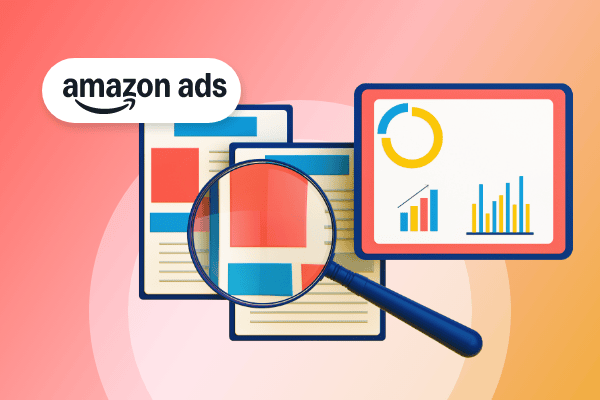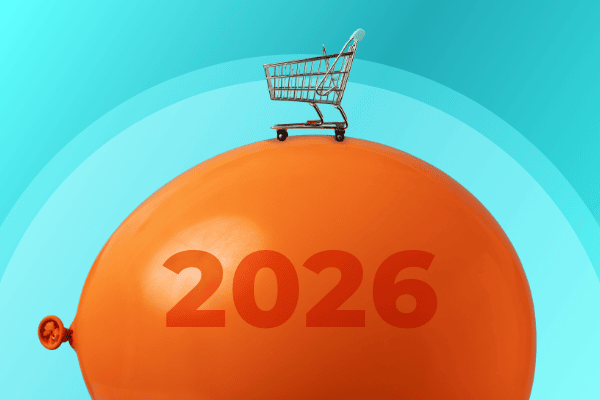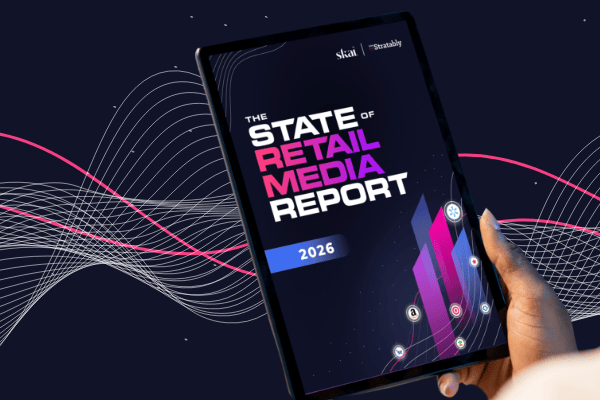Summary
AI is undeniably reshaping the marketing landscape, but where will these innovations have the greatest impact on paid search? From automating routine tasks like bid management and budget pacing to enhancing audience targeting and keyword discovery, AI is helping marketers unlock new efficiencies. As search evolves with technologies like voice and conversational AI, changing how users interact with search engines, AI tools will be essential to stay competitive in this dynamic landscape.
Last updated: December 23, 2025
As AI continues to be an integral part of our lives, marketers everywhere are exploring how it can enhance program performance. From automation to personalization, the possibilities are vast, but so are the questions about where to start and how to best utilize these emerging technologies. The key lies in identifying where AI can drive the most meaningful change without overcomplicating workflows.
According to generative AI adoption spikes 2024, 65 percent of surveyed organizations report regular gen AI use. That pace of adoption is accelerating expectations for faster optimization loops in channels like paid search.
Paid search, in particular, is filled with time-consuming tasks that demand precision and efficiency. Whether it’s bid adjustments, audience targeting, performance measurement — or even just weekly reporting — these critical areas hold tremendous potential for AI to drive impact and save valuable resources. With the right tools, marketers can reclaim time spent on manual work and channel it toward higher-level strategy and creative tasks humans are best at.
And it’s a moving target! Marketers need AI tools not only for today’s challenges but also to navigate the future of search as AI reshapes consumer behavior. With AI-powered search assistants and conversational interfaces rising, search marketers must account for these shifts to keep their campaigns relevant. The rules of engagement are changing fast, and a forward-thinking approach to AI tool adoption will help you keep pace with evolving search trends.
Here, we’ll dive into five essential areas of paid search, exploring how AI tools can make an impact both now and in the future. Each area offers a glimpse into the opportunities AI brings, highlighting its role in reshaping the paid search landscape.
Micro-answer: Automates optimization to improve search performance.
How does AI improve paid search campaign management and automation?
- AI automates core tasks to scale faster decisions.
- It reduces manual work across bids, budgets, pacing, and execution while improving responsiveness to real time signals. In practice, AI helps teams maintain performance consistency as accounts grow, freeing marketers to focus on strategy, testing, and creative iteration.
Effective campaign management and automation are the backbone of paid search success. The sheer complexity of managing multiple campaigns across keywords, audiences, and budgets can overwhelm even the most experienced marketers. Beyond keeping campaigns running smoothly, automation enables marketers to maximize efficiency and optimize results without requiring constant manual intervention.
By leveraging AI to address routine tasks like bid adjustments, pacing, and performance monitoring, marketers can redirect their efforts toward crafting strategies that truly move the needle. In an increasingly competitive digital marketplace, mastering campaign automation is not just about efficiency—it’s about staying ahead of the competition.
Critical, time-consuming tasks:
- Bid adjustments. Modifying bids across campaigns and keywords ensures the best ROI. Without frequent bid adjustments, campaigns can quickly lose relevance or overspend.
- Budget pacing. Monitoring spend to avoid overspending or underspending ensures efficient use of budgets. Proper pacing helps maintain consistent performance throughout a campaign’s lifecycle.
- Campaign structuring. Organizing campaigns, ad groups, and keywords improves efficiency and effectiveness. A well-structured campaign maximizes Quality Scores and reduces CPCs over time.
- Ad rotation optimization. Ensuring that the best-performing ads appear more frequently improves engagement and conversions. This helps campaigns focus impressions on ads that drive results.
- Performance monitoring. Tracking key metrics allows marketers to identify underperforming areas. Regular monitoring ensures timely adjustments to keep campaigns on track.
As account sizes grow, it becomes increasingly more challenging to manually maintain optimal bid strategies and budgets. Search marketers often feel the strain of managing numerous tasks across campaigns, including balancing budgets, optimizing bids, and monitoring performance metrics across thousands of keywords. The issue here is that every minute they spend on rote tasks required to manage the account is another minute lost that can be used to optimize it and drive up performance.
Even modest improvements in campaign automation can significantly reduce workloads and boost results. For instance, automating budget pacing helps prevent missed opportunities caused by overspending or running out of budget early. Similarly, automated bid adjustments ensure competitiveness while reducing the need for constant manual oversight, allowing marketers to focus on strategic initiatives.
With search representing $102.9B of U.S. digital ad revenue in 2024, AI driven operational efficiency in paid search is becoming a competitive necessity. That scale makes automation a practical requirement, not just a nice to have, for many teams managing multiple accounts and markets.
How AI can help today
AI can handle repetitive tasks like bid management, budget allocation, and pacing, enabling marketers to focus on higher-level strategies. Machine learning algorithms analyze historical performance data to recommend optimal bids and budgets. AI-driven automation tools also help restructure campaigns for better efficiency and performance, ensuring campaigns achieve the best ROI while reducing manual effort.
How AI could help in the future
As consumer behavior evolves with advancements in AI-powered search, campaigns will need to adapt dynamically to new expectations. Future AI tools could integrate predictive modeling to anticipate user preferences and trend shifts, enabling proactive adjustments. AI may also create fully autonomous campaign management systems capable of self-adjusting bids, budgets, and structures in response to real-time market data. This will be critical as voice search, conversational AI, and other emerging technologies redefine how consumers interact with search engines.
How is AI changing paid search targeting and audience engagement?
- AI improves targeting by predicting intent and relevancy.
- It helps marketers reach the right users by analyzing behavior signals, context, and audience data to refine who sees ads and when. Over time, AI can reduce wasted spend by improving match quality, expanding reach with better lookalikes, and adapting to more conversational search journeys.
Unlike other channels, where user targeting might rely heavily on demographics or interests, paid search targeting demands precision at the query level. Search marketers must balance relevance and scale by delivering ads that anticipate and address a searcher’s specific need when they type a query.
Targeting personalization in search marketing means ensuring your ads resonate with the searcher, creating a deeper connection, and driving higher conversion rates. The challenge lies in striking the perfect balance between scale and precision, delivering hyper-relevant messages without alienating broader audience groups. It’s a high-stakes puzzle that every search marketer must solve.
Critical, time-consuming tasks:
- Audience list creation. Analyzing on-site behavior, CRM data, and past purchase patterns to build targeted lists. This ensures campaigns reach the most relevant users and maximize engagement.
- Demographic layering. Applying filters like age, location, or income refines audience targeting. This added granularity improves relevancy and increases conversion rates.
- Remarketing lists for search ads (RLSAs). Re-engaging previous site visitors with tailored messaging brings back high-value potential customers. This approach improves return rates on ad spend.
- Ad copy and extension tailoring. Crafting specific messages and extensions for audience segments ensures relevancy. Personalization in messaging drives better click-through rates and engagement.
- Audience bid modifiers. Adjusting bids for high-intent segments optimizes campaign efficiency. Precision in bidding helps allocate spend where it will drive the most ROI.
Paid search marketers often face difficulties aligning audience targeting with intent signals. Queries can be ambiguous, making it hard to determine user intent with certainty. For instance, someone searching for “best running shoes” could be ready to buy, compare prices, or browse reviews. Striking the right balance between broad appeal and hyper-relevance is an ongoing challenge.
Marketers also need help integrating detailed audience insights like location, demographics, and device type with the intent behind keywords. Privacy concerns and limited access to granular data can further complicate efforts to personalize ads effectively.
Even modest improvements in these areas could significantly affect paid search campaigns. Better integration of intent signals with audience insights could lead to higher click-through rates and stronger ad relevance scores, which in turn drive lower CPCs and improved ROI. Marketers could spend less time on manual audience segmentation, bid adjustments, and free resources to focus on strategic campaign growth. Additionally, incremental gains in personalization could increase conversion rates across high-value audience segments, delivering outsized returns for advertisers in competitive markets.
In Nielsen’s June 2025 survey findings, 59 percent of global marketers cite AI for campaign personalization and optimization as the most impactful trend by 2025, reinforcing the shift toward AI enhanced audience relevance. That makes targeting precision a key early win for teams adopting AI in paid search.
How AI can help today
AI already addresses many of these challenges in paid search. Advanced machine learning models analyze search behavior to predict intent more accurately, helping marketers refine audience segments for better targeting. Real-time optimization tools dynamically adjust ad copy and landing pages based on audience signals, such as device type, location, or search history. AI-powered tools also provide insights into keyword clustering, enabling marketers to align their targeting strategies with nuanced search behaviors. These capabilities boost campaign relevance, improve audience engagement, and effectively drive conversions.
How AI could help in the future
As AI-driven search evolves, audience targeting will require even greater precision to meet consumer expectations for instant relevancy. Future AI systems could predict what users want and when they want it, creating opportunities for hyper-personalized ads tailored to context. AI could also enable fully dynamic, conversational ad formats that adapt based on real-user interactions. This will be essential as search becomes more conversational and contextual in nature, especially with the integration of voice and AI-powered search assistants.
How can AI improve paid search keyword discovery and optimization?
- AI accelerates keyword research and reduces wasted spend.
- It helps teams spot emerging queries, expand long tail coverage, and manage negatives by analyzing search term patterns at scale. By automating repetitive keyword tasks, AI can improve relevance and efficiency while supporting more nuanced intent detection as search moves toward conversational queries.
In paid search, keyword discovery and optimization identify the most relevant and high-performing keywords to drive traffic, conversions, and ROI. Keywords bridge the gap between what users are searching for and the solutions businesses provide, making them one of the most critical aspects of campaign success.
Marketers must continuously refine keyword strategies to keep up with shifting consumer behaviors, emerging trends, and competitive pressures. From identifying high-intent long-tail keywords to removing irrelevant traffic with negatives, keyword management requires creativity, precision, and vigilance. A strong keyword strategy ensures that campaigns are relevant and cost-efficient, maximizing ROI in a highly competitive environment.
Critical, time-consuming tasks:
- Keyword research. Identifying relevant keywords to target based on search volume, competition, and intent. Without ongoing research, campaigns risk missing valuable opportunities to capture intent.
- Negative keyword management. Filtering out irrelevant queries prevents wasted ad spend. This ensures campaigns remain focused on high-quality traffic.
- Search query analysis. Reviewing query reports uncovers new opportunities and inefficiencies. These insights are vital for refining keyword strategies and boosting campaign relevance.
- Keyword grouping. Structuring related keywords into ad groups improves campaign organization and performance. Proper grouping enhances ad relevance and improves Quality Scores.
- Bid optimization for keywords. Adjusting bids on high-performing or underperforming keywords ensures cost efficiency. This task directly impacts campaign competitiveness in auction-based platforms.
Marketers face constant challenges in identifying high-performing keywords and keeping campaigns cost-efficient. The volume of data and ever-changing consumer behaviors make it difficult to consistently uncover new keyword opportunities or refine strategies effectively. Managing negative keywords to eliminate irrelevant traffic and maintaining ad relevance can also be time-consuming.
Addressing these challenges could unlock significant benefits. More precise keyword discovery could help marketers identify high-intent, low-competition keywords that deliver better ROI. Improved negative keyword management could reduce wasted ad spend by filtering out irrelevant traffic, while advanced optimization could boost Quality Scores, lowering overall CPCs.
How AI can help today
AI-powered tools streamline keyword research by identifying trending topics and long-tail opportunities. Machine learning algorithms analyze historical performance and search trends to suggest keyword optimizations. Additionally, AI tools help manage negative keywords dynamically, ensuring irrelevant traffic is filtered out in real time while uncovering new, high-value queries from search term reports. These capabilities allow marketers to allocate their time toward more strategic initiatives while improving the precision and efficiency of their campaigns.
How AI could help in the future
As AI advances and consumer search behaviors shift, keyword discovery and optimization will need to evolve to accommodate more nuanced intent. Future AI systems could predict emerging search trends before they peak, enabling marketers to capture early opportunities. AI may also integrate with voice search and conversational search systems to identify queries that differ from traditional text-based searches. Furthermore, natural language processing (NLP) advancements could help marketers uncover deeper intent behind ambiguous queries, improving the relevancy of keyword strategies in an AI-driven search landscape.
How does AI improve paid search data analysis and insights?
- AI turns overwhelming campaign data into actionable insights.
- It speeds up analysis across performance trends, experiments, and attribution by processing large datasets and surfacing patterns humans might miss. This helps teams make faster decisions, improve budget allocation, and identify what is truly driving results across keywords, audiences, and creatives.
In paid search, data analysis and insights can transform campaign data into actionable strategies that improve performance. Marketers rely on these insights to refine their approach, measure success, and drive continuous improvement. With millions of data points generated across campaigns daily, the ability to extract actionable insights is critical for optimizing performance and driving results.
Paid search thrives on measurable outcomes, but raw data alone is not enough—it must be contextualized, analyzed, and transformed into strategies that enhance efficiency and profitability. Whether it’s identifying trends, evaluating A/B test results, or monitoring ROI, data-driven decision-making enables marketers to refine their campaigns with precision. The challenge is not in finding the data but in making sense of it in a way that informs smarter actions.
Critical, time-consuming tasks:
- Performance tracking. Monitoring metrics like CTR, CPC, and ROAS is essential for evaluating campaign success. These metrics guide adjustments to optimize results over time.
- Trend analysis. Identifying patterns in historical data informs future strategies. Recognizing trends early helps marketers stay ahead of competitors and adapt to consumer behavior shifts.
- A/B testing insights. Analyzing results from experiments determines what works best. Testing ensures campaigns evolve to better resonate with audiences and maximize impact.
- Cross-channel comparisons. Evaluating performance across platforms creates cohesive strategies. Integrated insights reveal how paid search fits into broader marketing efforts.
- Budget analysis. Determining how to allocate budgets effectively based on past performance ensures resources are spent where they will have the greatest impact.
The volume of data generated in paid search campaigns can be overwhelming, and translating it into actionable insights is often a bottleneck for marketers. Although metrics like CTR, CPC, and ROI are abundant, connecting the dots to uncover hidden trends or areas for improvement requires significant time and expertise.
Even small improvements in data accessibility and analysis could transform campaigns. Streamlined access to insights could enable marketers to make quicker, more informed decisions. Identifying hidden trends or underperforming areas could boost efficiency, while better attribution models could guide more intelligent budget allocation.
How AI can help today
AI analyzes large datasets faster and more accurately than manual efforts, uncovering actionable insights marketers might otherwise miss. Predictive models help forecast campaign performance, enabling proactive adjustments to stay competitive. Automated reporting tools visualize complex data, simplifying the interpretation of key metrics. AI-powered attribution models identify proper drivers of success, providing more precise insights into which strategies and keywords are delivering results.
How AI could help in the future
In the future, AI could integrate real-time insights directly into campaign platforms, offering on-the-fly recommendations as campaigns progress. Enhanced machine learning models may simulate hypothetical scenarios, allowing marketers to test strategies in a risk-free environment before implementation. With consumer behavior evolving alongside AI-powered search technologies, marketers will need tools that adapt to new search formats like voice and conversational AI. Future AI systems could also offer holistic cross-channel attribution models, bridging gaps between platforms to provide a comprehensive view of campaign performance.
How does AI affect paid search performance measurement and incrementality?
- AI strengthens measurement by improving attribution and incrementality testing.
- It helps marketers separate correlation from causation by analyzing complex datasets, supporting experimentation, and highlighting what truly drives lift. As signal loss and cross channel behavior increase, AI can improve confidence in performance decisions by connecting outcomes to the right audiences, keywords, and tactics.
In paid search, the mission of performance measurement and incrementality is to assess what drives value, distinguishing between incremental growth and baseline activity. Accurate measurement ensures marketers can allocate budgets to high-impact campaigns. Measuring success in paid search goes beyond CTRs and ROAS—it’s about identifying what’s genuinely driving growth versus what would have happened anyway. Incrementality testing ensures that every dollar spent contributes additional value, while advanced performance metrics reveal the full picture of campaign effectiveness.
However, accurate measurement in paid search can be complex, with overlapping touchpoints and multi-channel journeys complicating attribution. By mastering performance analysis, marketers can confidently invest in strategies that drive tangible, incremental business outcomes.
Critical, time-consuming tasks:
- ROAS calculation. Measuring the return on ad spend evaluates campaign profitability. This metric is a cornerstone of understanding overall performance.
- Incrementality testing. Running experiments determines the lift provided by specific campaigns. This ensures resources are spent on efforts that truly drive additional value.
- Attribution modeling. Assigning credit to different touchpoints clarifies the customer journey. This allows marketers to identify which strategies are delivering results.
- Cost analysis. Evaluating campaign efficiency helps reduce waste. Cost analysis ensures budgets are allocated to the most impactful channels and strategies.
- Benchmarking. Comparing performance to industry or historical standards identifies areas for improvement. Benchmarking ensures campaigns remain competitive and evolve over time.
Marketers need help understanding true incrementality due to overlapping touchpoints and complex customer journeys. They often need more reliable incrementality measurement tools and need help with attribution modeling in multi-channel environments. With accurate data, marketers can overestimate or underestimate campaign impact.
Solving these challenges could lead to better resource allocation and improved campaign outcomes. Incrementality insights ensure ad spend focuses on campaigns that genuinely drive additional value. Improved attribution can clarify which channels and keywords are most impactful, reducing wasted spend and driving higher ROI.
Nielsen’s 2024 Annual Marketing Report notes that measurement confidence can be high but incomplete, with only about one third measuring traditional and digital efforts together, which increases the need for better cross channel and incrementality focused approaches. That gap is where AI supported measurement workflows can add real value for paid search leaders.
How AI can help today
AI simplifies incrementality testing by automating experiment design and analysis, removing manual inefficiencies. Advanced attribution models use machine learning to assign credit more accurately across touchpoints, revealing hidden value in under-measured campaigns. AI also calculates incremental ROAS (iROAS), which provides a clearer view of which campaigns are truly driving additional value, helping marketers prioritize impactful strategies.
How AI could help in the future
As consumer behaviors shift with the adoption of AI-powered search tools, marketers will need more sophisticated performance measurement tools to track multi-step, non-linear customer journeys. Future AI systems could use real-time incrementality analysis to guide in-flight adjustments, ensuring budgets are reallocated dynamically as campaigns progress. Enhanced attribution models could incorporate external factors like seasonality, macroeconomic trends, and competitive activity, providing a fuller picture of campaign impact. Predictive incrementality modeling could also help marketers forecast the lift of planned campaigns, enabling smarter investment decisions in an AI-driven world.
How does Skai empower paid search with AI innovation?
- Skai applies AI to automate and optimize paid search at scale.
- Its AI capabilities help marketers manage campaigns more efficiently by improving bidding, budgeting, targeting, and measurement workflows. By combining automation with analytics and strategic controls, Skai supports teams that need to move faster, reduce manual work, and improve performance across complex enterprise search programs.
With over 20 years of experience developing cutting-edge advertising technology solutions, Skai has been at the forefront of innovation in paid search. We’ve been building tools with AI and machine learning for years, constantly refining our offerings to meet the needs of marketers. But now, as AI transforms the advertising landscape, our roadmap is firmly focused on delivering solutions that harness the full potential of this technology to help marketers drive better results with greater efficiency.
Skai’s paid search platform helps teams centralize bid, budget, and workflow automation across large search programs.This is a natural internal link placement within the section that discusses operational scale and automation.
Campaign management and automation
Skai leverages AI to streamline the management of complex paid search campaigns. From real-time bid adjustments to budget pacing, Skai automates critical tasks, enabling marketers to focus on strategic priorities. Its predictive capabilities help ensure that campaigns are optimized for maximum ROI, even in dynamic market conditions. Here are some of the AI tools you’ll find to help with campaign management:
- Budget Navigator. Leverages AI to dynamically allocate budgets across campaigns based on real-time performance trends, ensuring every dollar is spent effectively.
- Smart Bidding. Uses machine learning to adjust bids automatically, optimizing for target metrics like ROAS or CPC.
- Performance Monitoring. Provides AI-driven alerts and recommendations for underperforming campaigns, helping marketers take immediate corrective actions.
Audience targeting and personalization
Skai’s AI solutions enable marketers to target the right audience with the right message at the right time. By analyzing intent signals and audience data, Skai identifies high-value segments and ensures personalized messaging that maximizes engagement and conversion rates. A few of the AI tools within Skai that help refine audience targeting and personalization include:
- Audience Segmentation. Uses machine learning to create detailed audience segments based on behavior, demographics, and past campaign performance.
- Dynamic Ad Customization. Leverages AI to adjust ad copy and extensions in real-time, aligning messages with the intent of specific audience segments.
- Predictive Targeting. Anticipates audience behaviors by analyzing data trends, enabling marketers to refine targeting strategies dynamically.
Keyword discovery and optimization
Keywords form the foundation of every paid search campaign, and Skai’s AI-powered tools simplify the process of discovering and optimizing them. By analyzing search behaviors and performance data, Skai uncovers high-value keyword opportunities and ensures campaigns focus on queries with the greatest potential to drive conversions. Skai offers the following AI-powered tools to improve keyword optimization:
- Search Term Analysis. Uses AI to highlight trending keywords and identify underperforming terms, ensuring campaigns focus on the most impactful queries.
- Negative Keyword Management. Dynamically filters irrelevant traffic using machine learning, reducing wasted spend and improving campaign efficiency.
- Keyword Clustering. Groups related keywords intelligently, leveraging AI to improve ad relevance and streamline campaign structures.
Data analysis and insights
Skai’s platform centralizes and simplifies data analysis, offering marketers actionable insights at scale. AI-powered analytics uncover trends and opportunities that might otherwise be missed manually, while predictive tools guide decision-making to ensure campaigns are optimized for future success. Some of the AI tools within Skai that help uncover actionable insights include:
- Unified Analytics. Uses AI to integrate data from search, social, and e-commerce channels, providing a comprehensive view of campaign performance.
- Predictive Insights. Leverages AI to anticipate performance trends, enabling marketers to adjust strategies proactively.
- Custom Attribution Models. Applies machine learning to assign credit accurately across touchpoints, revealing the true drivers of campaign success.
Performance measurement and incrementality
Skai’s AI tools provide deeper visibility into campaign performance and incrementality, helping marketers identify what’s truly driving growth. By automating incrementality testing and integrating advanced attribution models, Skai ensures ad spend is focused on efforts that deliver measurable impact. Skai offers the following AI-driven tools to help with performance measurement:
- Impact Navigator. Uses AI to measure incremental lift from campaigns, distinguishing between baseline activity and true growth.
- iROAS Optimization. Leverages machine learning to calculate incremental ROAS, helping marketers prioritize campaigns that drive the most value.
- Advanced Attribution Models. Applies AI to map multi-channel customer journeys, providing accurate credit assignment across all touchpoints.
To see how Skai’s approach works across automation and analytics, explore our AI powered marketing capabilities and roadmap.This is the second required internal link placement, aligned to the AI innovation focus of this section.
How can you ride the AI wave to evolve your search program?
- Adopt AI to stay competitive in modern paid search.
- As AI capabilities expand, marketers who combine automation with strong strategy will improve efficiency, targeting relevance, and measurement confidence. The near term advantage comes from reducing manual workload and accelerating optimization. Long term success will come from building AI ready processes, data readiness, and experimentation discipline.
The importance of leveraging AI in search marketing cannot be overstated. As the landscape becomes more competitive and complex, AI can drive performance, save time, reduce errors, and increase accuracy in ways that manual efforts simply cannot match. By automating repetitive tasks, optimizing campaigns with real-time insights, and unlocking new opportunities through predictive analytics, AI empowers search marketers to achieve better results with greater efficiency.
For search marketers, staying on top of innovation is more critical than ever. As AI tools and capabilities evolve, adopting the latest advancements ensures you remain competitive and effective. It’s important to embrace these technologies to optimize current strategies and prepare for the future of search, where AI-driven solutions will redefine how campaigns are managed and measured.
At Skai, we are committed to being your trusted partner in this journey. With decades of experience and a forward-looking roadmap focused on AI innovation, we’re dedicated to equipping you with the tools you need to succeed in this ever-changing digital landscape. Together, we can navigate the complexities of search marketing and unlock new possibilities for growth and success.
Related Reading
- Skai’s in depth reporting and portfolio optimization empowers Inova to increase lead volume by 24 percent and decrease cost per lead by over 50 percent A strong example of scaled optimization and efficiency gains in paid search.
- Wildfi cuts paid search CPA by 62 percent with AI powered campaign optimization and automation Shows how automation and AI optimization can reduce acquisition costs.
- Boutique agency innovates paid search with Skai’s AI and automation Demonstrates practical workflow automation that frees teams for strategy.
Frequently Asked Questions
What is AI in paid search?
AI in paid search uses machine learning to automate optimization. It can adjust bids and budgets, refine targeting, surface keyword opportunities, and improve attribution insights based on performance signals. The goal is to reduce manual workload while increasing efficiency, relevance, and measurable outcomes across campaigns.
How do I implement AI in paid search campaign management?
Start with one high impact workflow such as bid adjustments or budget pacing. Define a clear goal like CPA or ROAS, ensure conversion tracking is reliable, and run a controlled test against your current approach. Review results weekly and expand AI automation gradually to additional campaigns as performance stabilizes.
Why isn’t AI bidding or optimization improving performance?
Common issues include noisy conversion signals, too little data volume, misaligned goals, or frequent manual overrides that prevent learning. Check tracking accuracy, give the system enough time to stabilize, and avoid changing budgets or targets too often. Also confirm you are optimizing to the metric that matches business value.
AI in paid search vs manual optimization: Which is better?
AI is best for repetitive, high volume decisions like bids, pacing, and large scale query pattern detection. Manual optimization can be better for early stage campaigns, low volume accounts, brand nuance, and strategic tradeoffs that require context. Many teams perform best with AI handling execution while humans lead strategy, testing, and guardrails.
What’s new with AI in paid search in 2025?
The biggest shift is toward more AI managed workflows across personalization, measurement, and automation, alongside growing emphasis on privacy compliant signals and better cross channel attribution. Industry research also highlights rising marketer focus on AI driven personalization and optimization as a leading trend shaping campaign performance expectations.
Glossary
AI in paid search: The use of machine learning and automation to optimize bids, budgets, targeting, keywords, and measurement across search campaigns.
Audience segmentation: Grouping users by behaviors, intent, or attributes to improve targeting relevance and reduce wasted spend.
Incrementality testing: A method to measure true lift by comparing outcomes with and without an ad exposure or change.
Attribution modeling: The process of assigning conversion credit across touchpoints to understand what contributed to results.






